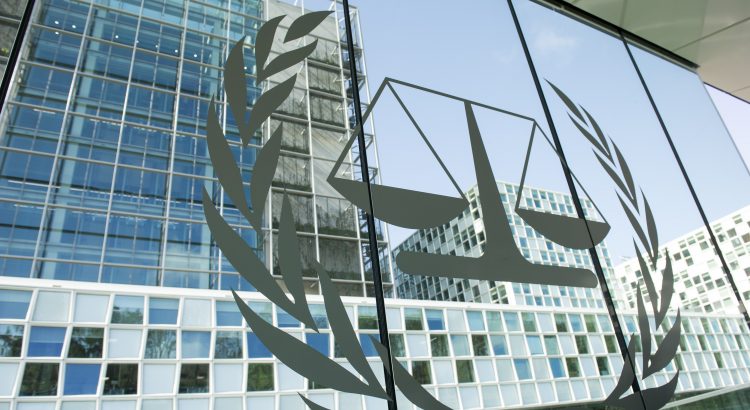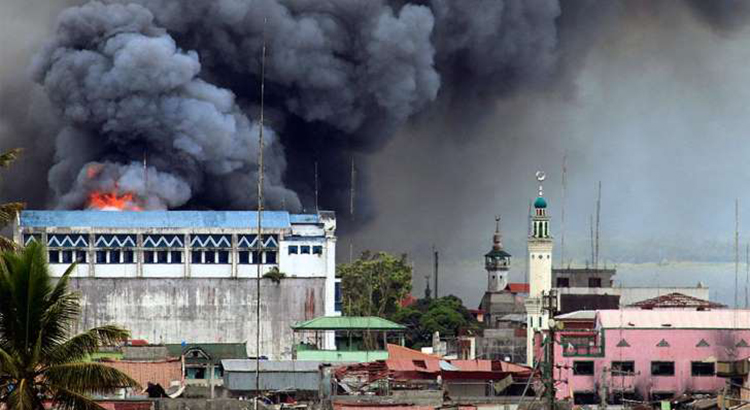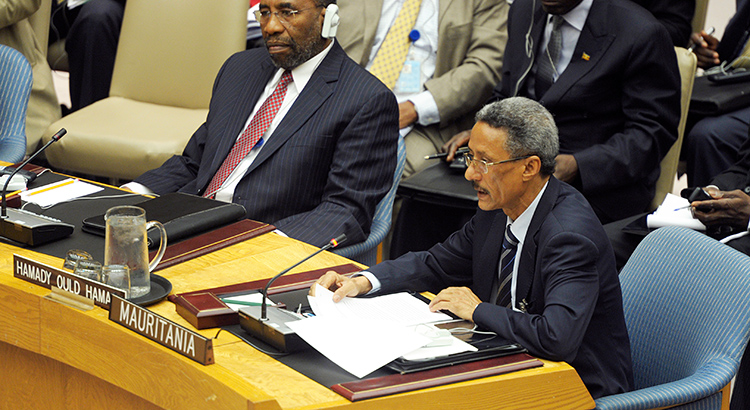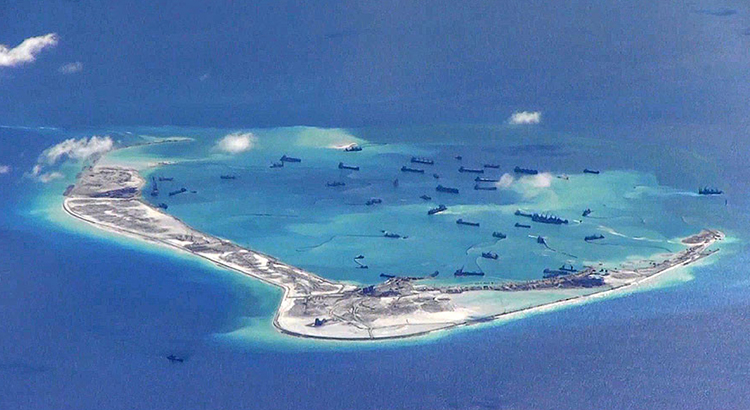On 26 October 2017, Burundi’s withdrawal from the Rome Statute – the founding treaty of the International Criminal Court (ICC) – took effect. This withdrawal is just the tip of the iceberg of a long-lasting confrontation between the ICC and some African states. When the Assembly of States (ASP) Parties to the Rome Statute convenes today for its 16th annual session in New York, the stakes are high as the ICC faces major challenges. The ASP should take on the dwindling support and criticism from the African Union (AU) as well as African states and bolster the ICC: States Parties should defend the integrity of the Statute, back the ICC’s budget, further outreach activities as well as the regional scope of investigations and strengthen the cooperation with the Court.
Kategorie: English
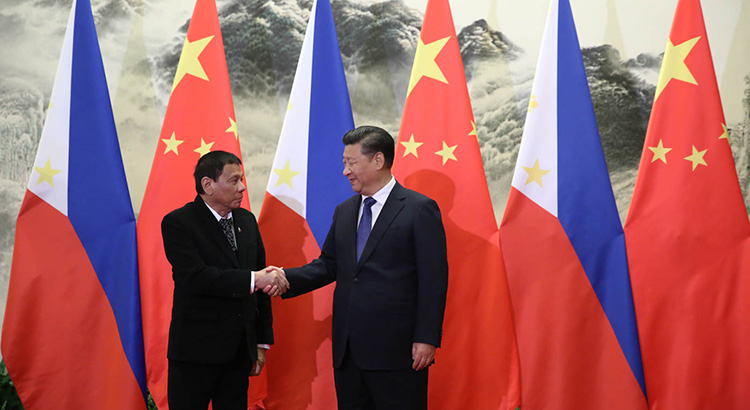
A “Ripe Moment” by Accident? The Turn-Around in Sino-Philippine Relations
In July 2016, the Permanent Court of Arbitration (PCA) rejected most of the Chinese claims in the case on disputed “islands” in South China Sea brought to the Court by the Philippines. The verdict triggered widespread fears of a further escalation of the conflict between China and the Philippines as well as the other claimants and the United States. Yet, the near simultaneous ruling by the PCA and the change in Philippine administration from President Benigno Aquino to Rodrigo Duterte created a “ripe moment” for a fundamental transformation of the crumbling Sino-Chinese bilateral relations.
An Emerging Caliphate in Southeast Asia? The Framing of Political Violence in the Philippines
In May 2017 two groups of Muslim fighters raided the city of Marawi in the southern Philippines. After five months of fighting, the Philippine military finally announced that the city was reconquered from the Maute and Abu Sayyaf groups that supposedly had ties to the Islamic State of Iraq and Syria. This incident resembles a crisis in 2013 when members of another armed group, the Moro National Liberation Front (MNLF), entered the city of Zamboanga and battled government troops for weeks. But whereas the Zamboanga crisis neither attracted much foreign attention nor was linked to international jihadism, the fighting in Marawi has been portrayed as part of larger conflict between militant Islamism and the civilised world – a narrative that is lacking substantial empirical evidence.
Global Governance and Procedural Justice
Worauf beruht die Chance, dass globale Normen und Regelwerke von Staaten und Sicherheitsorganisationen auf regionaler Ebene befolgt werden? Diese Frage steht im Zentrum der Diskussion um globales Regieren. Sie stellt sich jüngst drängender, weil neuere Entwicklungen den Eindruck nahelegen, zentrale Staaten in der nicht-westlichen Welt seien im Begriff, sich von den liberalen Institutionen des globalen Regierens zu verabschieden. Empirische Forschung zum Verhalten Südafrikas und der Afrikanischen Union zeigt, dass sich diese Skepsis in der Wahrnehmung mangelhafter prozeduraler Gerechtigkeit begründet. Für erfolgreiches globales Regieren muss zunächst diese Voraussetzung eingelöst werden.

Benefit Concert in the Manchester Arena: The Terror Threat and Peaceful Protests
On 22 May 2017, the suicide bomber Salman Abedi killed 22 people and injured many more after an Ariana Grande concert in the Manchester Arena. On 9 September 2017, the Manchester Arena was reopened with a benefit show labelled as a “We Are Manchester” concert. The concert’s aim was to raise money for a place of memorial for the victims of the attack. “We Are Manchester” is only one of the many peaceful responses to the attacks: In contrast to the heated debates on increasing security, they reveal different ways of standing together for a liberal and diverse society against the fear caused by terrorism.
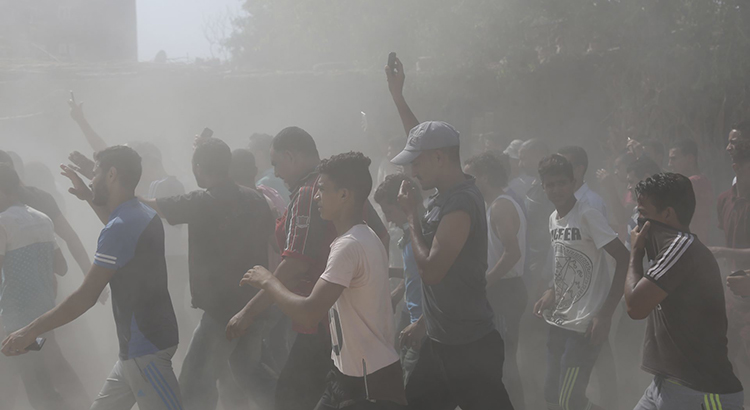
Egypt’s New Stability: How Long Can an Exclusionary Order Be Sustained?
The Egyptian government raised the prices of fuel and electricity at the end of June 2017, marking the second increase in less than a year. These measures are part of an IMF-backed reform effort, initiated in November 2016, that seeks to abandon most currency controls and to cut fuel subsidies. This new round of subsidy cuts has accelerated Egypt’s annual inflation rate, leading it to reach the highest level in decades by July. Despite the deterioration of socio-economic conditions in Egypt, protests have not erupted to any significant degree and, at first sight, the overall situation seems to be stable. This text presents a few doubts as to why the current order is not sustainable – in spite of the lack of public contention

The Knife Attack in Hamburg: Lone Actor Violence and Mental Illness
On the 28th of July, a 26 year old man, Ahmad A. launched a knife attack in a supermarket in the Barmbek area of Hamburg, wounding four people and killing one. He fled the scene of the attack before being forcefully apprehended by some bystanders. The attacker, a rejected asylum seeker, was understood by the police to have been recently religiously radicalised. Hamburg’s Interior Minister Andy Grote explained that he was known to the police as an “Islamist but not a jihadist” and was suspected of having psychological problems. Prosecutors have asserted that he had no known connections with any organized radical network or group and that he had planned on dying as a martyr.
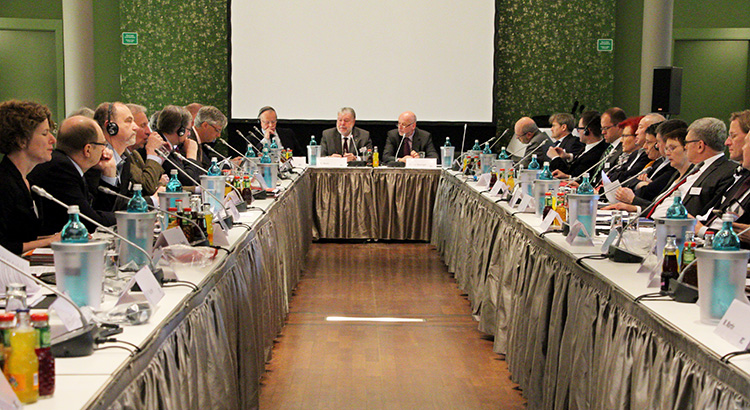
Talking Past Each Other? Twenty Years of German-Russian Schlangenbad Talks
The 1990s were marked by high expectations concerning the future of German-Russian or – more generally – Western-Russian relations. With the signing of the NATO-Russia Founding Act in 1997, the Cold War seemed to be definitively over. These developments constituted a positive context for the first meeting of the German-Russian Schlangenbad Talks that took place in 1998. Yet the next twenty years witnessed multiple crises and growing alienation between the two countries. A closer look at the Schlangenbad debates provides a differentiated picture of past discussions, thus allowing for a critical evaluation of the persistent inconsistencies and divergences as a lesson for the future.
Germany Sets a Poor Example: The Case of ATTAC in Light of Globally Closing Civic Spaces
A non-governmental organization (NGO) that is critical of the government’s actions in the country at hand receives a letter from the local tax office, indicating that its public-benefit status has been revoked on the grounds of its involvement in political activities. The decision involves 90 percent of the organization’s revenues, which, as a result, threatens its very existence. After a court has reviewed and closed the case in favor of the NGO, the central government intervenes, insisting that the judgment should be reviewed. For the time being, the organization’s public-benefit status has been revoked.
One Year after the Permanent Court of Arbitration’s Decision on the South China Sea
On July 12, 2016 the Permanent Court of Arbitration (PCA) in The Hague handed down its verdict on the case against China brought to the Court by the Philippines in 2013. The award nullified most of the Chinese claims in the South China Sea. Following China’s rejection of both the Court’s jurisdiction and its adverse decision, confrontation seemed looming. Yet, a year later the storm clouds have dispersed. The rather surprising absence of any crisis in the region rests on two coinciding factors: the legal standards for “islands” developed in the verdict and the change in government in the Philippines.
